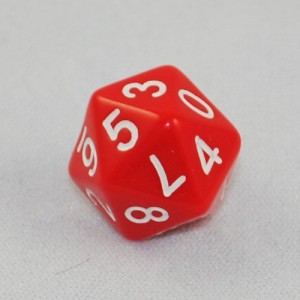![]()
 Ever notice in 4e how some of us go to great effort to create characters with straightforward powers and feats? For example, I’m a big proponent of taking “always on” feats for my characters, as it’s one less thing to track or calculate during those long 4e combats. You and I both know how precious actual game time is!
Ever notice in 4e how some of us go to great effort to create characters with straightforward powers and feats? For example, I’m a big proponent of taking “always on” feats for my characters, as it’s one less thing to track or calculate during those long 4e combats. You and I both know how precious actual game time is!
When I DM, I take it a step further and make that same suggestion of choosing less complex powers and feats to any players in my playgroup who struggle with turn speed or rules mastery, which are more difficult to achieve on average in rules-heavy 4e.
On the opposite end of the spectrum, some of my power gamer and tactician style players like that additional layer of crunch and tactical options that the more complex powers, feats and magic items offer. I don’t like the built-in combat slowdown they come with, but some players are capable of executing and resolving their impact more quickly than others. And while there are some great things about 4e, I ultimately don’t think there’s enough “fun” and “cool” to balance the time and tracking costs for many of these 4e rules elements.
And here comes 5e, created by us, which takes this basic philosophy of game rules complexity to a whole new level. What if you could choose the complexity of your D&D game – on an individual player level?
Here’s an oven-fresh snippet from Monte Cook, the original D&D 3e designer himself, now joining forces D&D team again:
Second—and this sounds so crazy that you probably won’t believe it right now—we’re designing the game so that not every player has to choose from the same set of options. Again, imagine a game where one player has a simple character sheet that has just a few things noted on it, and the player next to him has all sorts of skills, feats, and special abilities. And yet they can still play the game together and everything remains relatively balanced. Your 1E-loving friend can play in your 3E-style game and not have to deal with all the options he or she doesn’t want or need. Or vice versa. It’s all up to you to decide.
What about a Gold Standard?
This was my one concern about a slider-based rules complexity approach in 5e. Months ago, I posted a comment in one of the Legends and Lore series of articles about how an out-of-the-box gold standard of D&D that truly balances rules complexity and storytelling is absolutely critical to a true D&D experience. Sure, the modular approach Mearls presented had merit, but at the same time, I didn’t like the idea of every gaming group playing to their own 100-pages worth of house rules, which is what 3e and 3.5 evolved into. There were so many rules, so much complexity, it became hilarious comparing one gaming group to another. You never knew what rules you were running with from one group to the next, as it seemed every group ran with some major rules changes.
Sort of like the basketball analogy in the New York Times article discussing 5e’s release, it becomes a farce when one particular player plays basketball with modern rules and other uses handball rules from centuries past in the same game. Imagine playing Scrabble where everyone uses different letter point values. Or playing World of Warcraft where some classes require only pressing 3 ability keys in their optimal damage rotation, while other rotations involve 9.
Games are supposed to be fair and balanced around a consistent rules set. Isn’t there something inherently unfair about each of these game situations?
Complexity Slider = 5e Gold Standard
I wasn’t sure this slider-based complexity approach could work at first. But then I changed how I looked at it. We are all designers for D&D 5e and we’re taking the gold out-of-box standard of the D&D experience to a whole new level. Being able to adjust the complexity levels themselves at an individual player level is the new gold standard. That’s quite a switch!
There’s no question some things will have to remain the same, no matter whether you play at D&D Complexity Rank 1 or 5. For example, skills will have to be present in some form, as will ability scores and/or their modifiers. Same thing with typical combat actions. But it’s their execution and resolution that will vary. Flame Strike might look and feel the same regardless of its Complexity Rank, but its qualities, conditions and riders will be slightly different depending on where you put your personal game complexity slider. At least, that’s how I envision it. It’s a radical and yet somehow all-inclusive shift from previous versions of D&D – but that’s probably exactly what D&D needs to grow, thrive, and feel like D&D again.
What’s Your Slider Level?
Can it work? Will it work? Are you a believer? What D&D rules complexity level are you setting your slider on? A simple 1 or a complex 5? Weigh in and talk about it below.
Image Source: Game Master Dice